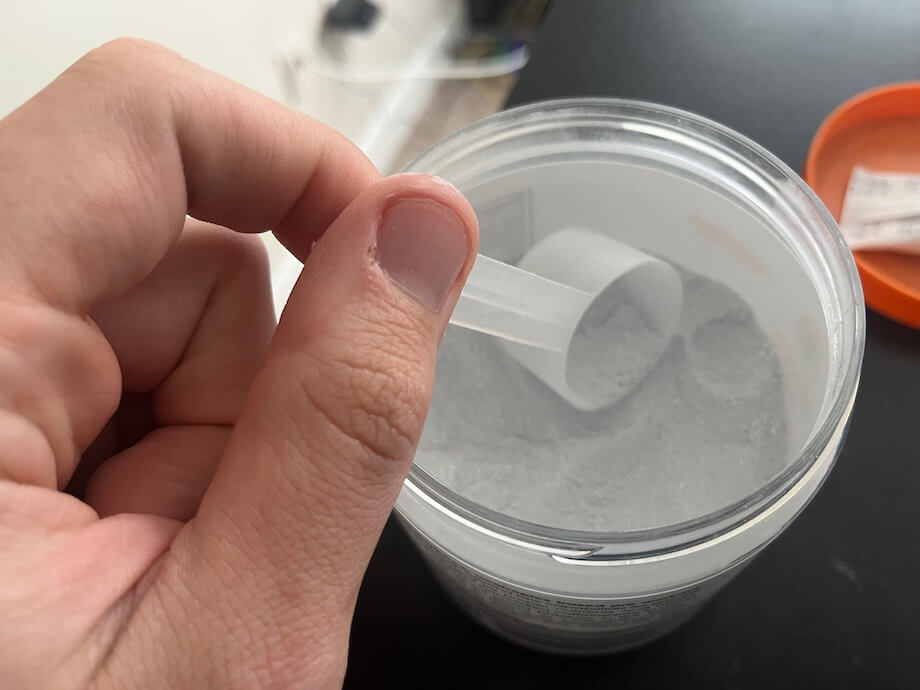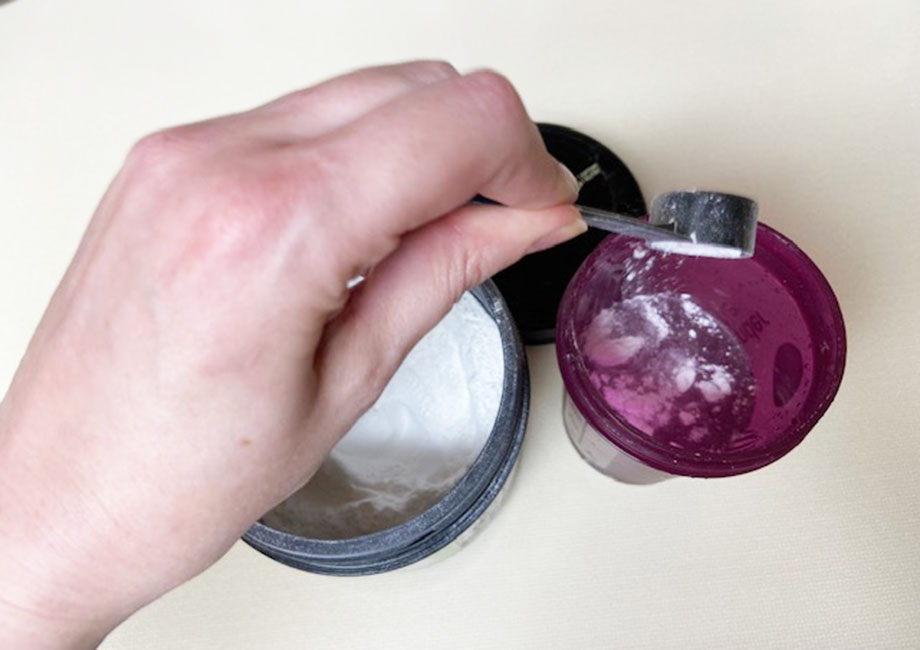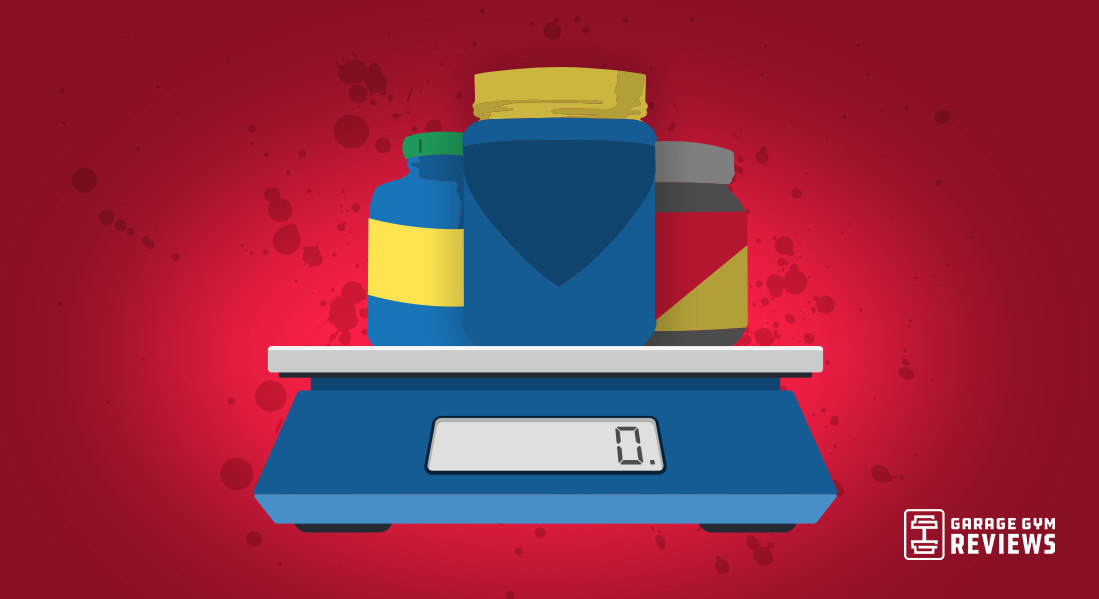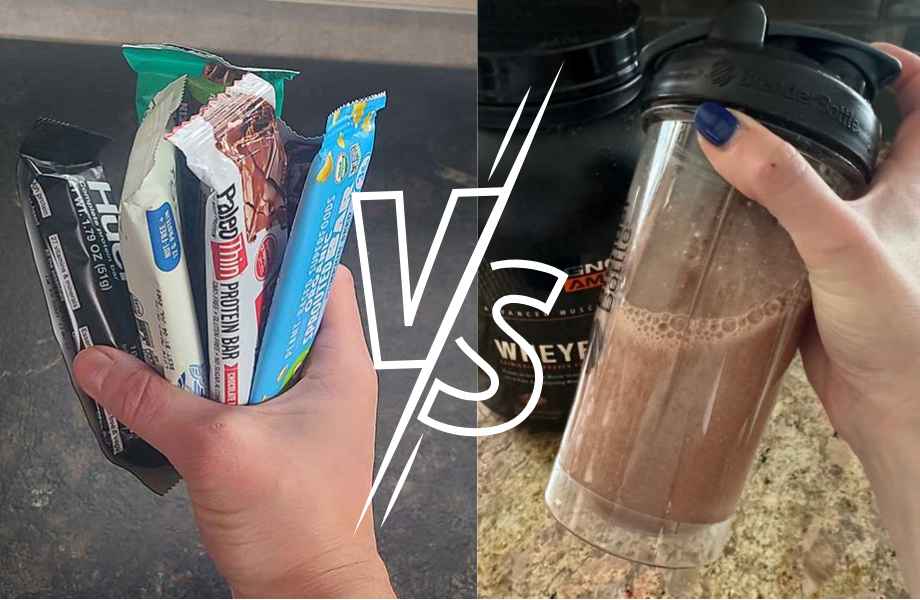If you’re exploring “What is DMAA pre-workout?” then you’ve landed at the heart of a fiery debate—possibly even more intense than the EAA vs BCAA dispute.
The significant and potentially fatal risks associated with DMAA are a major cause for concern, raising the question of why there’s any debate in the first place. Yet, DMAA defenders, including some researchers, reveal that the dangers are primarily due to misuse. Meanwhile, consumers are filled with questions, and rightfully so.
As a registered dietitian, I’ve delved deep into the data to uncover the truth about DMAA pre-workout. Join me as I objectively weigh in on this topic, aiming to clarify this complex discussion.
Editor’s Notes: We strongly recommend against using products with DMAA or supplements that contain it. This article is intended for educational and informational purposes only. It is not intended as a substitute for medical advice. For health advice, contact a licensed healthcare provider.
A Look at DMAA: What It Is and Dosages
DMAA1 (1,3-dimethylamylamine or 1,3-DMAA), a pharmaceutical and amphetamine derivative, is often recognized as a supplement ingredient. Delving into its history unfolds an intriguing story and helps capture what DMAA truly is.
Let’s roll back the DMAA tape:
- 1948: DMAA first emerges as a nasal decongestant.
- 1940s-1950s: Studies reveal DMAA’s similarities to ephedrine and amphetamine.
- 1970s: Withdrawal of medical use approval due to efficacy doubts.
- 1996: Evidence hints at DMAA’s presence in geranium oil.
- 2010: The World Anti-Doping Agency (WADA) bans DMAA under methylhexaneamine. This year also sees serious adverse health events and positive DMAA tests among nine Australian athletes.
- 2011: DMAA is banned in Canada and implicated in the toxicology reports of two U.S. Army soldiers’ deaths. A New Zealand man also suffers a cerebral hemorrhage from DMAA “party pills.”
- 2012: New Zealand and Australia (via the Advisory Committee on Medicines Scheduling and the Therapeutic Goods Association) ban DMAA. The U.S. Food and Drug Administration started issuing warning letters to DMAA product manufacturers, declaring these products illegal and requiring their market removal.
- Various studies in the 2010s: Studies throughout the 2010s cast doubt on the natural occurrence and potency of DMAA in geranium extract and raise significant safety concerns. Reports of numerous adverse events, including deaths due to high-dose DMAA ingestion, come to light.
This history leads us to wonder, “What’s considered a ‘high dose’ of DMAA?” Understanding this is key to comprehending its risks and impacts.
DMAA Dosages
Dosing DMAA is challenging due to the absence of definitive guidelines. However, critical insights from a study in BMC Pharmacology and Toxicology2 shed some light on what might be considered safe usage:
- Safe dosage observations: 25 milligrams of DMAA appears safe, showing no significant impact on heart rate, blood pressure, or body temperature.
- Higher dose risks: Adverse effects are linked to dosages 15 to 30 times higher than the study dose (around 375-750 mg), as indicated by elevated plasma concentrations in case reports.
DMAA also has a longer half-life and quicker onset than caffeine, which can influence how it works in the body, especially when mixed with caffeine and other substances like in a pre-workout.
What Happens When You Take DMAA Pre-Workout?
Understanding the effects of DMAA pre-workout is difficult with limited human studies, but we can gain some insights by exploring the properties of DMAA3.
Legal Implications
First off, the FDA proclaims DMAA-containing products as illegal. Also banned by the World Anti-Doping Agency (WADA), competitive athletes can fail drug tests and jeopardize their careers due to DMAA use.
Physiological Effects of DMAA
DMAA appears to provide a sympathomimetic effect, mimicking neurotransmitters like epinephrine, norepinephrine, and dopamine in the sympathetic autonomic nervous system4 (SANS). This system triggers the body’s “fight or flight” response, preparing it for physical exertion by redirecting blood to essential areas during heightened physical demands.

Stimulatory Effects
As a stimulant5, DMAA may increase focus, alertness, and energy levels during workouts. Although stimulants may enhance mental and physical performance, their misuse can cause heart attack, anxiety, depression, and other serious health consequences.
Vasoconstriction
DMAA promotes vasoconstriction, narrowing blood vessels, which could encourage muscle blood flow during exercise while raising blood pressure. A 2018 review6 notes blood pressure peaks 60 to 90 minutes post-intake, particularly when paired with caffeine. This poses risks for individuals with hypertension (high blood pressure), using other blood pressure-increasing substances, or engaging in intense resistance training.
DMAA for Physical Performance
DMAA is often touted for boosting energy, mood, focus, and exercise performance. Although scientific evidence to back these claims is limited, there are some studies we can draw from.
A notable 2011 study7 involving 12 exercise-trained participants examined DMAA’s effect on a 10-kilometer run. The results showed no significant performance enhancement, challenging the belief in DMAA’s effectiveness in sports.
Studies examining Jack3d, a popular DMAA-containing product, over short8 (14 days) and long periods9 (10 weeks) revealed minimal impact on heart rate and blood pressure. While some users report improved focus and intensity during workouts, others experience adverse effects like anxiety and fatigue.
But an important disclaimer: Much of the research on Jack3d is funded by USPlabs, LLC, the product’s manufacturer, who has faced criminal charges. This raises serious questions about the objectivity of the research.
Interestingly, Jack3d announced that its DMAA-containing version is banned, replacing DMAA with DMHA in the current 2019 reformulation. The product also includes geranium extract, with DMAA supposedly removed. Despite these changes, banned or not, the exact dosages of ingredients in this proprietary blend are undisclosed.
DMAA for Weight Loss
DMAA is promoted for weight and fat loss, especially when combined with caffeine and other agents. The pre-workout Jack3d may suppress appetite, but the DMAA-infused “fat burner” OxyELITE Pro—also distributed by USPLabs and formulated with DMAA and caffeine—takes the spotlight.
A 2011 study10 suggests OxyELITE Pro can effectively reduce body weight and fat percentage. However, it’s linked to at least 50 cases of acute liver injury in young, healthy people. These concerning incidents underscore the severe and potentially fatal dangers of using such supplements.
RELATED: Weight Loss Pills That Don’t Work
Harmful Side Effects of DMAA Pre-Workout
DMAA pre-workouts pose significant health risks even beyond severe headaches and vomiting, a concern that also applies to DMAA products marketed for weight loss3.
Cardiovascular Concerns
Research11 shows that DMAA use can cause a dose-dependent increase in blood pressure. When combined with caffeine or alcohol, this risk escalates, leading to potentially fatal cardiovascular events like heart attack and cerebral hemorrhaging (bleeding in the brain).
Liver Injuries
DMAA’s link to liver injury, especially in military users of OxyELITE Pro, sounded a major health alarm. Symptoms manifested as jaundice, fatigue, and abdominal pain, with some cases resulting in severe hepatitis, the need for liver transplants, and even death.
Attention later shifted to aegeline, an ingredient in the reformulated version of OxyELITE Pro, as the potential harmful culprit. Yet identifying the harmful ingredients in such complex supplements remains challenging and highlights the potential risks of taking multi-ingredient products.
Fatal Outcomes
The dangers of DMAA have been tragically highlighted by multiple fatalities, including soldiers suffering cardiac arrests during physical tests and the death of a London Marathon runner after using a DMAA-containing supplement. These events highlight the severe dangers of DMAA, especially when paired with intense exercise—an expected time for consuming DMAA pre-workouts.
In light of these risks, which escalate at high doses or when combined with other substances, it’s vital to explore safer alternatives to DMAA pre-workouts.

Alternatives to Taking DMAA Pre-Workout Supplements
If you’re searching for the best DMAA pre-workout product, you won’t find that here. But you will find some DMAA alternatives, including the strongest pre-workouts (still use cautiously and as instructed) and stim-free options (hear us out on this one)!
- Chosen for: Strongest pre-workout overall
- Caffeine content: 200 mg (1 scoop), 400 mg (2 scoops)
Pros:
- Combines stimulants, like DMAE6 (similar to DMAA but not as potent nor banned)
- Pumps ingredients for an energy boost and intense focus
Cons:
- Artificial ingredients
- Banned substances (in some areas)
- Chosen for: Strongest pre-workout for strength and power
- Caffeine content: 305 mg (1 scoop)
Pros:
- Clinically dosed with powerful ingredients like alpha-GPC12
- No artificial additives
- Third-party tested
Cons:
- Manufactured in a facility with allergens
- Chosen for: Strongest pre-workout for focus
- Caffeine content: 300 mg (1 scoop)
Pros:
- Formulated to elevate focus, energy, and endurance
Cons:
- Contains sucralose and color additives
- Lacks third-party third-party testing
- Chosen for: Strongest natural pre-workout
- Caffeine content: 350 mg (2 scoops)
Pros:
- Natural and science-backed ingredients
- Third-party tested
- Screened for banned substances
Cons:
- Limited servings per tub
Huge Supplements Wrecked Enraged
- Chosen for: Strongest pre-workout on a budget
- Caffeine content: 200 mg (1 scoop), 400 mg (2 scoops)
Pros:
- Clinically-dosed
- Whole-food sources
Cons:
- Potent stimulants, but some are banned and prohibited in select countries
- Chosen for: Strongest pre-workout for a pump
- Caffeine content: 175 mg (1 scoop), 350 mg (2 scoops)
Pros:
- Strong pump ingredients, including a hefty dose of L-citrulline13
Cons:
- Mixed reviews on taste and effectiveness
- Contains sucralose
- Chosen for: Strongest pre-workout with best taste
- Caffeine content: 320 mg (1 scoop)
Pros:
- No proprietary blends with unique ingredients
- Great taste
Cons:
- Artificial ingredients
- Chosen for: Strongest pre-workout with creatine
- Caffeine content: 388 mg (1 scoop)
Pros:
- 20+ ergogenic and patented ingredients
- Informed Choice Certified (meaning it undergoes third-party testing and is free of banned substances)
Cons:
- Pricey
Stim-Free Pre-Workouts
OK, OK… High-stim junkies may not be on board (yet) but hear us out about the best stim-free pre-workouts!
Stim-free pre-workouts, devoid of traditional stimulants, are jam-packed with effective pre-workout ingredients. They boast citrulline malate for that sought-after muscle pump, nootropics for laser-sharp focus, and beta-alanine to fend off fatigue, setting the stage for a killer workout.

Non-stim pre-workouts are, well, free of stimulants. However, they contain effective pre-workout ingredients—like citrulline malate for the pump, nootropics to enhance focus, and beta-alanine to combat fatigue—for a killer workout.
And here’s a compelling point: Did you know regular caffeine use might sabotage your performance gains? According to a 2019 study14, building a tolerance to caffeine can diminish its effects, potentially reducing the benefits you see in your athletic performance.
The stimulating news? Reducing your caffeine intake, perhaps with the help of a non-stim pre-workout, could reignite those benefits.
Final Thoughts: What Is DMAA Pre-Workout
To wrap up, delving into the world of DMAA pre-workouts goes beyond just understanding a supplement; it’s about fully grasping the history and science behind DMAA to make an informed decision for your health.
DMAA may increase alertness, focus, and energy, but severe and life-threatening risks significantly overshadow these potential benefits, particularly when misused or mixed with other substances. The legal implications, including the bans and disapprovals of the FDA and WADA, further complicate this issue.
As a consumer, the choice is ultimately yours, but consider exploring safer alternatives that offer a risk-free workout boost. Remember, your health and safety should always be the top priority when selecting pre-workout supplements.
Lastly, if you’re still weighing the use of DMAA, ponder this crucial question: While DMAA pre-workouts may intensify your fitness routine, isn’t the ultimate goal of exercising to enhance your health and life rather than put it in jeopardy?
What Is DMAA Pre-Workout: FAQs
What is the purpose of DMAA in pre workout?
Due to its stimulant properties, DMAA as a pre-workout ingredient may enhance energy, focus, and blood flow.
Is DMAA illegal?
According to the FDA, DMAA is illegal in the United States, and its inclusion in dietary supplements violates the law.
Is DMAA a drug?
Based on its stimulant properties, DMAA is currently regulated under the Psychoactive Substances Act 2013, according to the New Zealand Medicines and Medical Devices Safety Authority. It’s also banned in many countries, including Australia, the USA, the UK, and Canada.
Does C4 have DMAA?
C4 pre-workout does not contain DMAA. According to Cellucor’s website, its C4 Sport Series is NSF® Certified for Sport, ensuring it meets strict standards and has no contaminated substances or hidden ingredients.
These statements have not been evaluated by the Food and Drug Administration. This product is not intended to diagnose, treat, cure, or prevent any diseases.
References
- Dunn M. Have prohibition policies made the wrong decision? A critical review of studies investigating the effects of DMAA. Int J Drug Policy. 2017 Feb;40:26-34. doi: 10.1016/j.drugpo.2016.10.005. Epub 2016 Nov 14. PMID: 27856133.
- Schilling BK, Hammond KG, Bloomer RJ, et al. Physiological and pharmacokinetic effects of oral 1,3-dimethylamylamine administration in men. BMC Pharmacol Toxicol. 2013;14:52. Published 2013 Oct 4. doi:10.1186/2050-6511-14-52
- Bloomer RJ, Smith NJC, Moore DC, et al. 1,3-Dimethyl- amylamine (DMAA): A Brief History and Review of Anecdotal and Laboratory Findings. J Altern Complement Integr Med. 4: 057.
- Alshak MN, M Das J. Neuroanatomy, Sympathetic Nervous System. [Updated 2023 May 8]. In: StatPearls [Internet]. Treasure Island (FL): StatPearls Publishing; 2023 Jan-. Available from: https://www.ncbi.nlm.nih.gov/books/NBK542195/
- Mantri S, Agarwal S, Jaiswal A, et al. Bodybuilding: A Comprehensive Review of Performance-Enhancing Substance Use and Public Health Implications. Cureus. 2023;15(7):e41600. Published 2023 Jul 9. doi:10.7759/cureus.41600
- Dreher M, Ehlert T, Simon P, et al. Boost Me: Prevalence and Reasons for the Use of Stimulant Containing Pre Workout Supplements Among Fitness Studio Visitors in Mainz (Germany). Front Psychol. 2018;9:1134. Published 2018 Jul 17. doi:10.3389/fpsyg.2018.01134
- Bloomer RJ, McCarthy CG, Farney TM, et al. Effect of Caffeine and 1,3-Dimethylamylamine on Exercise Performance and Blood Markers of Lipolysis and Oxidative Stress in Trained Men and Women. J Caffeine Res. 2011;1(3):169-177. doi:https://doi.org/10.1089/jcr.2011.0019
- Farney TM, McCarthy CG, Canale RE, et al. Hemodynamic and hematologic profile of healthy adults ingesting dietary supplements containing 1,3-dimethylamylamine and caffeine. Nutr Metab Insights. 2011;5:1-12. Published 2011 Dec 6. doi:10.4137/NMI.S8568
- Whitehead PN, Schilling BK, Farney TM, et al. Impact of a dietary supplement containing 1,3-dimethylamylamine on blood pressure and bloodborne markers of health: a 10-week intervention study. Nutr Metab Insights. 2012 Feb 2;5:33-9. doi: 10.4137/NMI.S8885. PMID: 23882146; PMCID: PMC3698473.
- McCarthy CG, Canale RE, Alleman RJ Jr, et al. Biochemical and anthropometric effects of a weight loss dietary supplement in healthy men and women. Nutr Metab Insights. 2011 Dec 6;5:13-22. doi: 10.4137/NMI.S8566. PMID: 23882144; PMCID: PMC3698475.
- Bloomer RJ, Harvey IC, Farney TM, et al. Effects of 1,3-dimethylamylamine and caffeine alone or in combination on heart rate and blood pressure in healthy men and women. Phys Sportsmed. 2011 Sep;39(3):111-20. doi: 10.3810/psm.2011.09.1927. PMID: 22030947.
- Bellar D, LeBlanc NR, Campbell B. The effect of 6 days of alpha glycerylphosphorylcholine on isometric strength. J Int Soc Sports Nutr. 2015;12:42. Published 2015 Nov 17. doi:10.1186/s12970-015-0103-x
- Gonzalez AM, Trexler ET. Effects of Citrulline Supplementation on Exercise Performance in Humans: A Review of the Current Literature. J Strength Cond Res. 2020 May;34(5):1480-1495. doi: 10.1519/JSC.0000000000003426. PMID: 31977835.
- Lara B, Ruiz-Moreno C, Salinero JJ, et al. Time course of tolerance to the performance benefits of caffeine. PLoS One. 2019;14(1):e0210275. Published 2019 Jan 23. doi:10.1371/journal.pone.0210275






